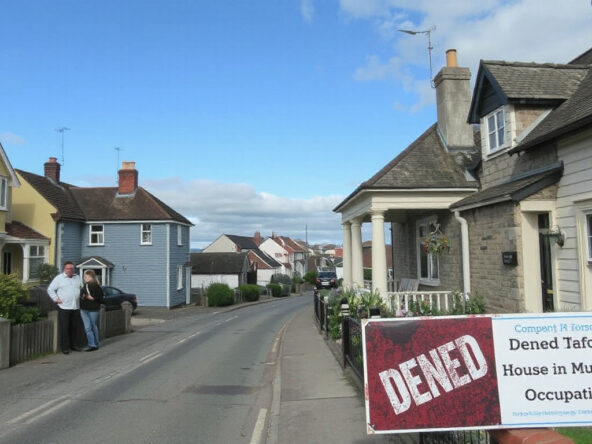Residents in Derry are increasingly worried about the proliferation of houses in multiple occupation (HMOs) in their neighborhoods, particularly around the Ulster University Magee campus. With projections of increasing student enrollment, reaching 10,000 by 2032, many locals argue that the uncontrolled expansion of HMOs is threatening the overall character of their community. A group formed by these concerned residents, known as Concerned Residents Around Magee (CRAM), is advocating for local council intervention, specifically a cap on new HMO approvals, to combat potential disruptions such as noise and congestion in their streets. Presently, Derry has 212 licensed HMOs, and while the council has hinted at new planning policies to regulate this growth, resident sentiments point towards a growing urgency for action to maintain the integrity of their neighborhoods.
Key Takeaways
- Residents near Magee campus are worried about the rising number of HMOs affecting community character.
- The group CRAM is advocating for a cap on new HMO approvals to prevent further imbalance in housing.
- Concerns about noise and congestion are growing as student enrollment at the university is projected to increase significantly.
Concerns Over the Increase of HMOs in Derry
Residents in Derry, particularly those in close proximity to Ulster University’s Magee campus, are sounding the alarm over the surging number of houses in multiple occupation (HMOs) within their neighborhoods. The community group, Concerned Residents Around Magee (CRAM), is actively lobbying the local council to establish a cap on new HMO approvals. Their primary argument hinges on the argument that the high concentration of HMOs around the campus is leading to an imbalance in the city’s housing landscape. This situation has become increasingly pressing following a report that predicts an increase in student enrollment at the Magee campus that could reach 10,000 by
2032. While this growth is viewed by many as a potentially transformative opportunity for the area, it concurrently heightens the demand for suitable accommodation, further exacerbating the current housing issues (The Derry Journal, 2024). Local residents, such as Kathleen Feeney, have raised concerns regarding the impact of this transformation on their neighborhoods, citing increased noise and congestion attributed to the rise of HMOs. At present, Derry has 212 licensed HMOs, and despite council officials’ assurances regarding new planning policies aimed at regulating this trend, many residents fear that without substantial intervention, the unique character of their community could be irrevocably compromised (BBC News, 2024).
For those interested in the ongoing debates surrounding housing policies and community integrity in Derry, this situation presents a significant case study of the challenges posed by rapid urban development in academic locales.
The Call for Local Council Action to Preserve Community Character
The concerns raised by CRAM echo a growing sentiment among residents in urban areas experiencing similar demographic shifts due to educational institutions. Experts argue that while universities play a critical role in local economies, an unchecked increase in HMOs can lead to significant social and environmental consequences, including reduced community cohesion and diminished housing quality (Northern Ireland Housing Executive, 2024). The call for local council action highlights the importance of balancing the needs of students seeking affordable housing with the expectations of long-term residents who desire to maintain the character of their neighborhoods (The Irish News, 2024). Additionally, the implementation of effective planning strategies that include community feedback could pave the way for developing comprehensive housing solutions, ensuring that both students and residents can coexist harmoniously in Derry’s evolving landscape.
Feel free to contact us via WhatsApp, social media, or email.
Always find the best rooms to rent & HMOs for sale in the UK at HMO Reporter.




